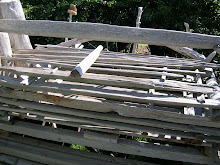
Friends helped me realize that playing is how I live my adult life. I have always found other ways to proceed and have found when I simply engage in activities, ideas pop into my head about ways to make most activities more playful. There seems to be a constant adjustment to what comes next. Call it an internal wobble.
When I try to write a description of play for someone else, something essential gets left out. Basically we can make anything playful, so the idea of proposing exercises that promote play introduces a problem. The exercise can be playful, but it can also be completed in a fashion that I wouldn’t consider playful. So how do I provide a qualitative difference when it isn’t a matter of what we do, but how we do it? It is about a relationship between an inner and outer world and a consideration of what happens as we proceed. Something already appears in my written voice that separates me from my play state. But here’s what’s next.
As an 18 year old, I first stumbled back on play. It was an unhappy period, finding that what I filled my time with didn’t alleviate my distress. This event came after the time I tried to eat seven Swiss Chocolate bars at once. Well actually I ate them in series and failed to complete the game. Chocolate has never been the same. I’ve never tried that game again with chocolate, but I did try it once with cookies without the dire consequences, except that I can’t buy more than two types of cookies at a time.
One afternoon, I simply began to arrange some objects in a container. I cut some things, and glued some things, and made a kind of collage out of images and text, and small objects. Something unusual happened. I lost all sense of unhappiness, or of completion, and time folded back on itself. I just fell out of the usual parameters and found at the end of the afternoon that I felt fine. I can’t even describe it as feeling better. I removed myself from the measures and checks with which I had usually assessed my state of mind. I had a fine time. I remember few details, though I do know that at one point I checked the time and I still had most of the afternoon in front of me. I felt as though I had been engrossed in my activity for a long time. At another moment I was surprised that an hour passed in what seemed like a moment. I was puzzled and pleased.
A lot of time passed before I had another experience like this one, where time vanished and activity simply unfolded. But something had been revealed, and I chose to call this play. I felt like I had stumbled upon something of great value that I couldn’t accurately describe.
As I have explored this realm, some things seem to help me get there and some things help me stay there. I am pretty sure this is idiosyncratic. But I think the process and certain aspects of the process show up again and again. So I will offer some of these notions and hope that along the way they will provide you with a way into your own play state. I’d really like to encourage you to invite yourself into this realm. And I then encourage you to explore what’s next. Hopefully my descriptions will encourage you to define your own experience more clearly, rather than lead you to expect us to share the same experiences.



